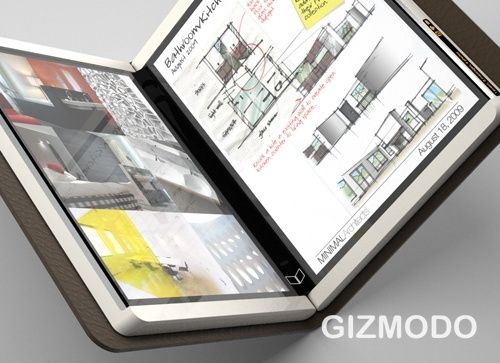Next Microsoft Surface Could Be Foldable, Make Calls
Microsoft is working on a new Surface device that could deliver a foldable design, according to a new report.
The tech giant has started work on a foldable device codenamed Andromeda that will run on Windows 10, according to Windows Central, which cited unidentified sources. The device will have a foldable display and act more as a tablet when it's open. When closed, however, Microsoft has designed the Surface to be as small as a phone and fit into your pocket.
In fact, the sources told Windows Central that the device could allow you to place and receive calls. The sources stopped short, however, have called Andromeda a smartphone and instead said it's best characterized as a "digital pocket notebook."
Microsoft has been building out its hardware division with its Surface line of computers for some time. And so far, the company's machines, including the Surface Book, Surface Pro and others, have all proven somewhat popular. Adding a foldable tablet to the mix could put Microsoft in direct competition with Samsung, which is also said to be working on a foldable device. However, Samsung's gadget, believed to be known as the Galaxy X, seems to a phone-first type of design.
MORE: Surface Book 2 Hands-on: Microsoft's MacBook Pro Killer Is Here
At the center of the Andromeda experience is e-ink and digital writing, according to the Windows Central report. Microsoft wants to create an experience that will allow you to pull out Andromeda, unfold it like a notebook, and start digitally writing on the screen.
According to Windows Central, Andromeda will likely ship with an ARM-based processor instead of one from Intel or AMD, so it'll likely come with a high-powered Snapdragon chip. As noted, it'll also run Windows 10.
Sign up to receive The Snapshot, a free special dispatch from Laptop Mag, in your inbox.
For now, there's no telling whether Andromeda will become a shipping product. However, if it does find its way to the market next year, Microsoft would want to pitch it as its own unique product in a separate market and not one that would compete with tablets, smartphones, or hybrids.
Image credit: Gizmodo
Don is a journalist working with Laptop Mag. He writes about some of the best Apple products you need to keep your eyes on, including apps for the iPad, MacBook Air accessories, and the greatest MacBook Pros. Outside of Apple, Don's coverage includes Samsung, Microsoft, and Raspberry Pi. Don has also written for Tom's Guide, Digital TechCrunch, The New York Times, and Forbes. He now runs his own content & PR firm, D2 Tech Agency.

